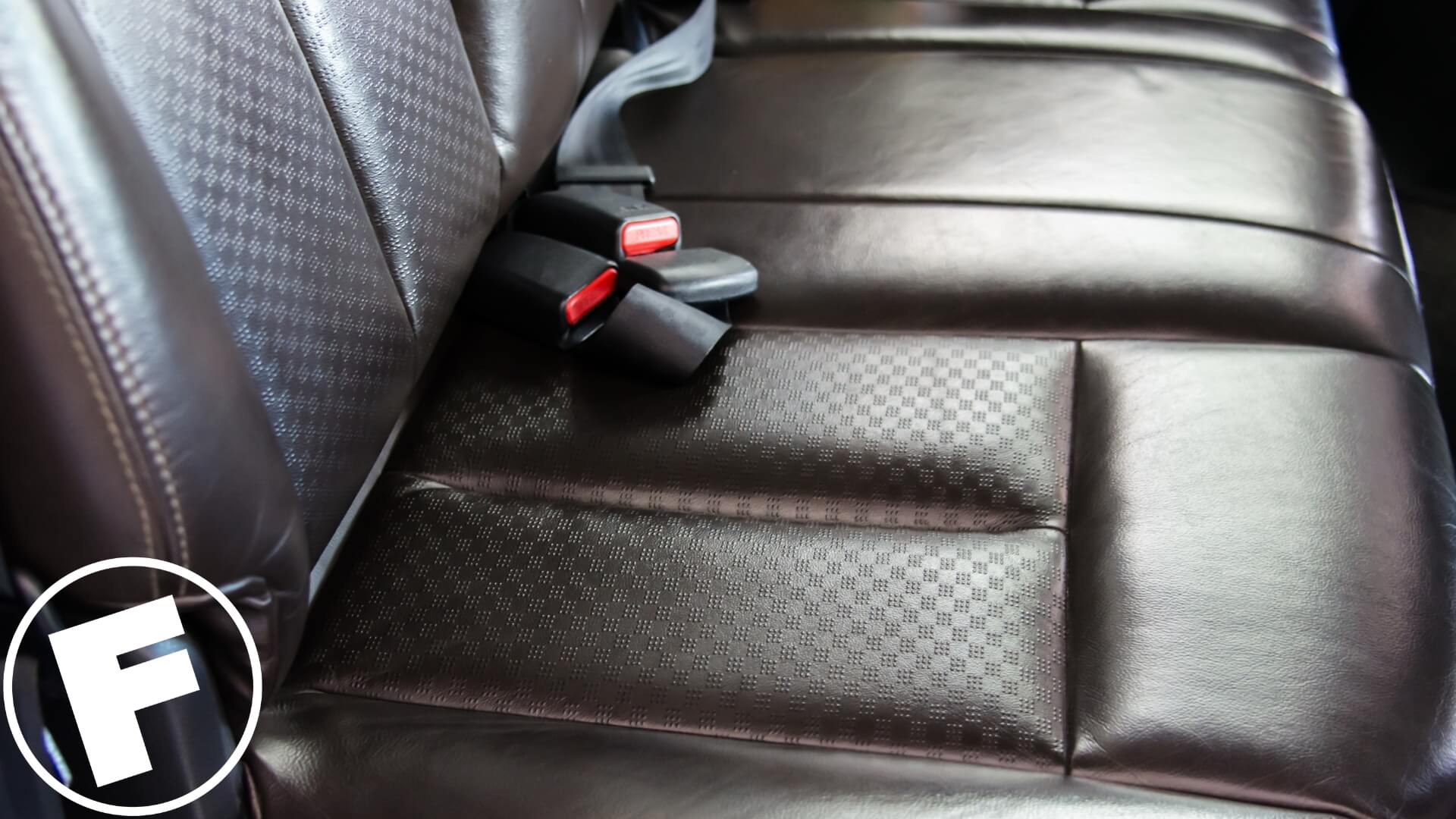How to Clean Leather Car and Motorcycle Seats
Leather seats in cars and motorcycles exude a timeless elegance and provide unmatched comfort. However, maintaining their pristine condition requires regular care and attention. Over time, dirt, grime, and daily wear can take a toll on the leather surface, diminishing its aesthetic appeal and longevity. Without proper cleaning and conditioning, leather upholstery may become cracked, discolored, or even develop mildew.
For vehicle owners, whether enthusiasts or casual drivers, understanding leather care is essential for preserving the value and beauty of their leather interior. Using the right tools, such as leather cleaner, leather conditioner, and microfiber cloths, can make all the difference. This guide will walk you through effective methods to clean leather car seats and motorcycle seats, addressing everything from everyday maintenance to deep cleaning. By following these steps and avoiding common mistakes, you can ensure your leather seats remain as good as new for years to come.
Let’s dive into the details of proper car care and learn how to achieve spotless and well-maintained leather upholstery.

Why Proper Leather Care Matters
Leather upholstery is a premium feature in both cars and motorcycles, valued for its durability, comfort, and sophisticated appearance. However, without proper care, leather can deteriorate over time due to exposure to dirt, moisture, and the rigors of daily use. This not only diminishes the aesthetic appeal of your vehicle’s interior but can also lead to permanent damage, such as cracks, discoloration, and the buildup of grime.
Regular cleaning and conditioning protect the leather surface by removing contaminants and replenishing its natural oils. Neglecting these steps can result in mildew, scuffs, and an overall worn look that reduces the value of your vehicle. Additionally, leather seats in cars and motorcycles face different challenges, such as weather exposure and frequent contact with clothing, making consistent maintenance essential.
Using appropriate leather care products ensures your upholstery remains supple, clean, and resilient. Proper care also enhances the overall experience of owning a vehicle with leather interiors, combining style with longevity. By investing time and effort into maintaining your seats, you’ll not only protect your investment but also enjoy the comfort and elegance of beautifully maintained leather.
Gathering the Right Cleaning Supplies
Cleaning leather car and motorcycle seats effectively begins with assembling the right tools and products. Using high-quality cleaning supplies ensures you can remove dirt and grime without damaging the leather surface. Here’s what you’ll need:
Essential Cleaning Products and Tools
- Leather Cleaner
- Specifically formulated to remove grime and stains without harming the leather’s natural finish.
- Leather Conditioner
- Hydrates and protects the leather, preventing cracks and preserving its softness and sheen.
- Microfiber Cloth
- Soft and non-abrasive, ideal for applying and wiping cleaning products without scratching the surface.
- Clean Cloth
- For drying and removing any residual cleaner or conditioner.
- Car Care Kit
- A comprehensive kit may include specialized brushes for cleaning crevices and applicators for conditioners.
Why These Supplies Matter
- Leather cleaner is critical for safely lifting dirt, grime, and buildup without stripping the leather’s oils.
- Leather conditioner adds a protective layer that prevents drying and cracking while enhancing the material’s elasticity.
- Using a microfiber cloth reduces the risk of abrasions, while a clean cloth ensures no residue is left behind.
- Specialized tools included in a care kit make it easier to tackle hard-to-reach areas like crevices and seams.
Pro Tip
Before using any leather cleaning products, always consult the owner’s manual for your vehicle. This will provide specific guidance on the type of leather upholstery used and recommendations for safe cleaning methods. Testing products on an inconspicuous area is also essential to avoid unexpected damage.
Step-by-Step Guide to Cleaning Leather Car Seats
Maintaining leather car seats requires a methodical approach to ensure thorough cleaning without causing damage. Follow these steps to clean, protect, and preserve your seats for years to come.
Preparation
- Remove Seat Covers and Loose Items
Clear the area to avoid interference during cleaning. If your seats are covered, remove the seat covers to expose the leather surface. - Vacuum the Seats
Use a vacuum with a soft brush attachment to remove loose dirt and debris. Pay special attention to crevices and seams, as these areas often trap dust and grime. - Test the Cleaning Products
Before applying leather cleaner to the entire seat, test it on an inconspicuous spot. This ensures compatibility with your specific leather upholstery and prevents potential discoloration or damage.
Cleaning the Leather
- Apply Leather Cleaner
Dampen a microfiber cloth with a small amount of leather cleaner. Avoid over-saturating the cloth, as excessive liquid can soak into the leather and cause damage. - Use Circular Motions
Gently rub the leather surface using circular motions to lift dirt and grime. This technique ensures even coverage and minimizes the risk of scratches. - Focus on Problem Areas
For spots with visible buildup or stains, apply a bit more pressure or use a soft-bristle brush to agitate the cleaner. Be cautious not to scrub too hard, as this can damage the leather. - Wipe with a Clean Cloth
Once the cleaner has loosened the dirt, wipe the surface with a clean, dry cloth to remove any residue. This step ensures the leather is free from leftover cleaning solution.
Deep Cleaning
- Use a Soft Brush
For deep cleaning, particularly in crevices or textured leather, use a soft brush to gently scrub hard-to-reach areas. - Repeat if Necessary
For stubborn grime, repeat the cleaning process until the leather looks clean and refreshed.
Conditioning the Leather
- Apply Leather Conditioner
Once the leather is clean and dry, apply a small amount of leather conditioner to a microfiber cloth. Use circular motions to spread the conditioner evenly over the surface. - Allow to Absorb
Let the conditioner sit for the recommended amount of time, allowing it to penetrate and nourish the leather. - Buff the Surface
Use a clean cloth to gently buff the seats, removing any excess conditioner and leaving a smooth, non-greasy finish.
By following these steps, you can effectively clean leather car seats while protecting them from wear and tear.
Cleaning and Caring for Motorcycle Seats
Motorcycle seats, though smaller than car seats, require equally diligent care to maintain their leather surface. Due to their constant exposure to the elements, such as sun, rain, and road debris, motorcycle seats are more susceptible to grime, scuffs, and mildew. Here’s how to clean and protect them effectively.
Challenges Specific to Motorcycle Seats
- Outdoor Exposure: Unlike car interiors, motorcycle seats face direct sunlight, rain, and temperature fluctuations, which can dry out or damage the leather.
- Compact Design: Motorcycle seats often have intricate stitching and designs, making it harder to clean crevices and edges.
- Increased Wear: Constant use and the friction from riding gear can lead to scuffs and rapid wear.
Cleaning Steps
- Remove Loose Dirt and Debris
Wipe the seat with a microfiber cloth to remove any loose dirt, dust, or debris. This prevents particles from scratching the leather during cleaning. - Apply Leather Cleaner
Dampen a microfiber cloth with leather cleaner and gently rub the seat in circular motions. Pay extra attention to areas with visible grime or stains. - Focus on Crevices
Use a soft brush to reach stitching and detailed areas where dirt may accumulate. This ensures a thorough clean without damaging the leather. - Wipe Off Residue
Use a clean cloth to remove any remaining cleaner, leaving the surface clean and dry.
Conditioning the Leather
- Apply Leather Conditioner
Spread a small amount of leather conditioner evenly over the surface using a microfiber cloth. This step is crucial for protecting the leather from environmental damage. - Let It Absorb
Allow the conditioner to sit for the recommended time so it can penetrate and hydrate the leather. - Buff for a Smooth Finish
Gently buff the seat with a clean cloth to remove excess conditioner and enhance the leather’s natural shine.
Additional Tips for Motorcycle Seats
- Protect from Weather: Use a waterproof cover when your motorcycle is parked outdoors to shield the seat from rain and UV rays.
- Regular Maintenance: Clean and condition your seat every few weeks, especially if your motorcycle is frequently exposed to the elements.
- Avoid Harsh Products: Stick to leather cleaning products specifically designed for automotive or motorcycle use to prevent damage.
With proper care, your motorcycle seat will remain supple, clean, and ready for every ride.
Call Fibrenew if the wear and tear is too much
Get in touch with your local Fibrenew professional for all your leather, plastic, and vinyl repair needs.
Want to run a business that gives you incredible earning potential and the flexibility to take control of your time and life? Join the Fibrenew Family!
Check out our free Franchise Information Report for everything you need to know. And check out the always-updated list of Fibrenew Certified Resales.
Also, enjoy these valuable resources on all things leather, plastic, and vinyl repair, franchising, sustainability, and more:
How often should I clean my leather car and motorcycle seats? Routine cleaning should be done weekly or bi-weekly, with a light dusting and wiping down. Deep cleaning and conditioning are recommended monthly, with a comprehensive session every three months. Can I use household cleaning products on leather seats? It’s best to avoid household cleaning products, as they can be too harsh and damage the leather. Use specialized leather cleaners and conditioners designed specifically for automotive leather. What should I do if my leather seats get a stain? For stains, act quickly. Blot the stain with a clean, dry cloth to absorb as much as possible. Then, use a leather cleaner on a microfiber cloth to gently clean the area. Avoid rubbing harshly, which can spread the stain or damage the leather. How can I prevent my leather seats from cracking? Regular conditioning is key to preventing cracks. Conditioning keeps the leather supple and moisturized, which helps it resist cracking. Avoid exposing the seats to direct sunlight for prolonged periods, as UV rays can dry out the leather. Is there a difference between cleaning car seats and motorcycle seats?Cleaning leather seats FAQ








